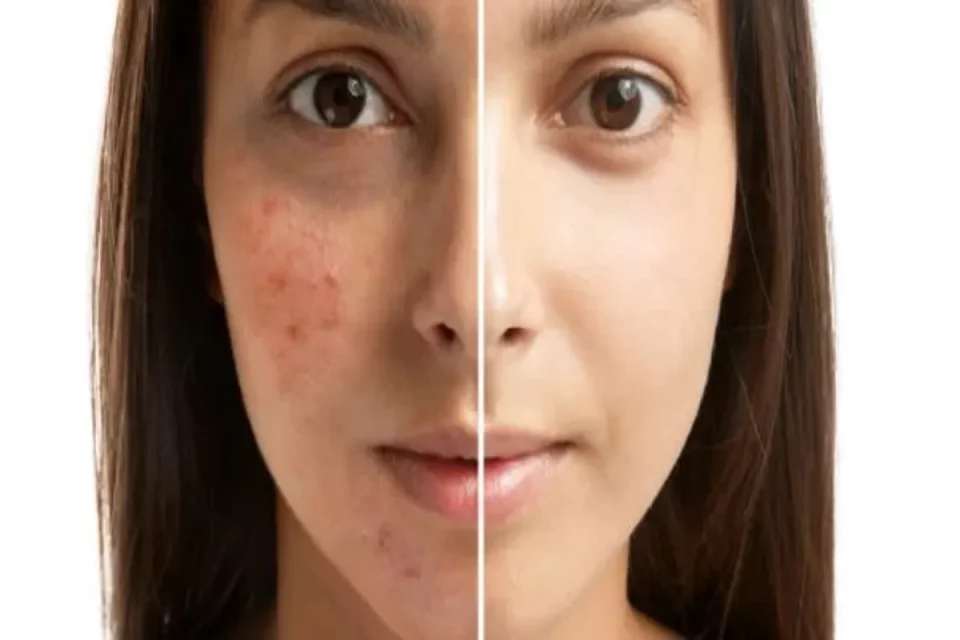Acne Black Spots – The medical name for black spots generated by acne or other kinds of inflammatory damage such as burns or eczema is post-inflammatory hyperpigmentation (PIH).
PIH is common in people of color, and more than 65% of African Americans report symptoms. The spots are red in persons with fair complexion and brown in people with dark skin. It is also more common in Latin American women than in Asian, Indian, or Caucasian women.
Acne patches fade with time, according to the American Academy of Dermatology (AAD), although it may take many months.
The first step is to get the acne under control. A person can then concentrate on preventing injury and promoting recovery by employing goods, drugs, treatments, and supplements. Home and natural remedies
Regular skin care can help people cope with acne and its aftermath. Over-the-counter (OTC) products can be used to treat melasma caused by acne.
Table of Contents
To Find And Use Products That Are Right For Their Skin.
General advice is to avoid skin care regimens or products that can increase dryness and irritation. It would help if you also used gentle cleansers and lotions that won’t clog pores. If your skin is itchy after using the product, we recommend you stop using it or only use it once every two days.
People can also limit exposure to sun and wind to prevent further damage and promote skin healing. A person can apply sunscreen all year round to reduce PIH.
Medical Treatment
Medical treatments for black spots caused by acne include:
1. Retinoid
This medication is a common acne treatment. They usually come in topical form, which means a person applies them to the skin. Retinoids and benzoyl peroxide can bleach towels and sheets but do not lighten skin. It would benefit if you started with the product at a concentration of 0.025% to ensure there is no irritation. Doctors typically prescribe tretinoin in 0.025% and 0.05% concentrations.
Studies have shown hydroquinone to lessen black spots’ size, coloring, and severity.
2. Glycolic Acid Peel
Studies have shown that combining a regular acid peel with hydroquinone therapy boosts outcomes substantially.
Other treatment options include:
- Corticosteroids
- Chemical peel
- Laser treatment
- Intense pulsed light therapy
It will aid if you consult your doctor or dermatologist to discuss your options.
Acne On Parts Of The Body
Melasma caused by acne can appear on thin, delicate areas such as the face and neck. Treatment is generally the same for most areas of the body and face.
Acne can arise anywhere on the body, but acne is more likely to occur where there are many oil-producing sebaceous glands in the skin and hair. This includes the following areas:
- Return
- Shoulder
- Chest
- Neck
- Face
Acne in hard-to-reach places can complicate the treatment process.
If you only have dark spots on your forehead or temples, hair products may be the cause of your acne. You can change hair care products or use them only on the ends of your hair to avoid further breakouts and skin damage.
Prevent Acne Black Spots
Acne treatment and management are the most effective ways to avoid acne spots.
Sun exposure can darken spots, so people can use broad-spectrum sunscreen to prevent further fading outdoors.
Some authorities claim that early and aggressive treatment of potential dark spots can prevent them from fully developing. However, it is important not to make the problem worse by irritating the skin.
How long will Acne Black Spots take to disappear?
Experts say dark spots on the top layers of the skin, or epidermal PIH, can last 6 to 12 months. However, it may take several years for the spots deeper or in the dermis to disappear.
People should maintain a skin care and treatment routine to speed up healing.
When To See A Dermatologist
People with severe acne breakouts are advised to consult a dermatologist. They can help an individual to find the most effective treatment and reduce the risk of developing dark spots.
Most people with melasma recover without treatment, but sometimes extra support is needed. If dark spots interfere with your personal, social, or professional life, a dermatologist may be your choice.
Conclusion
Black spots on acne are a common result of acne. It tends to resolve independently, but the process can take months.
Various treatment options, such as natural remedies, over-the-counter products, and prescription medications, can speed healing.

